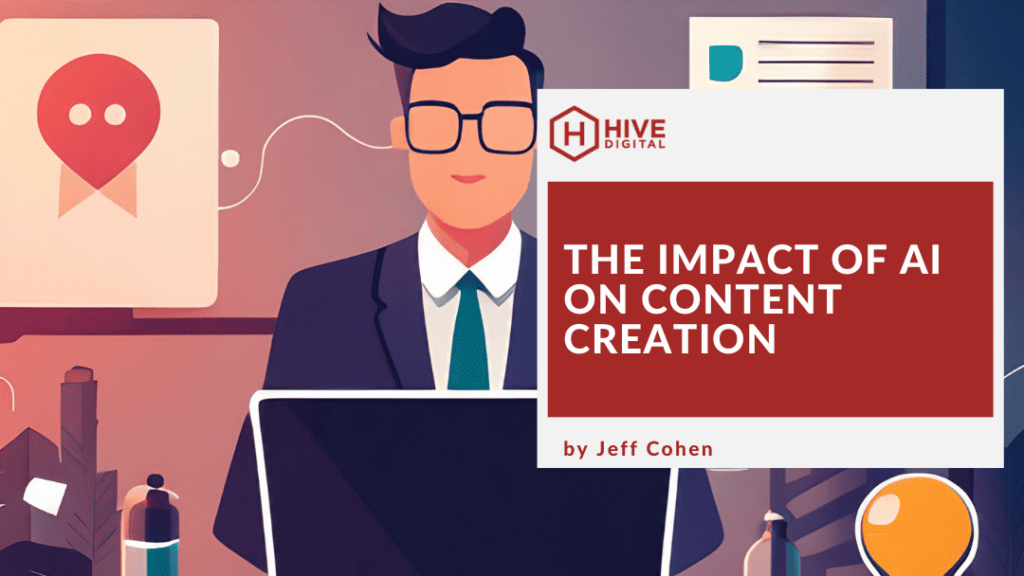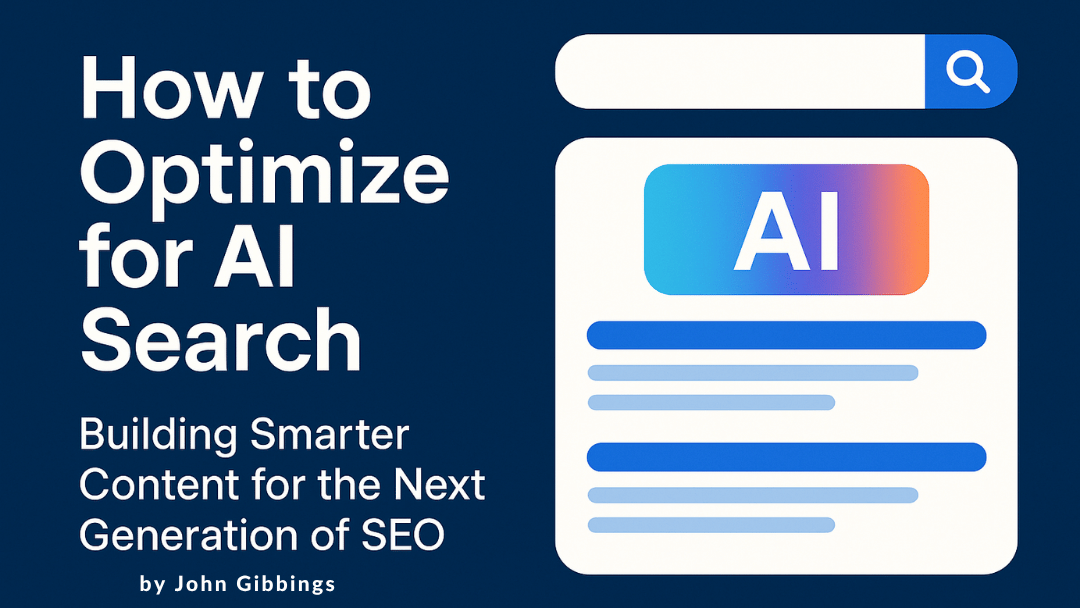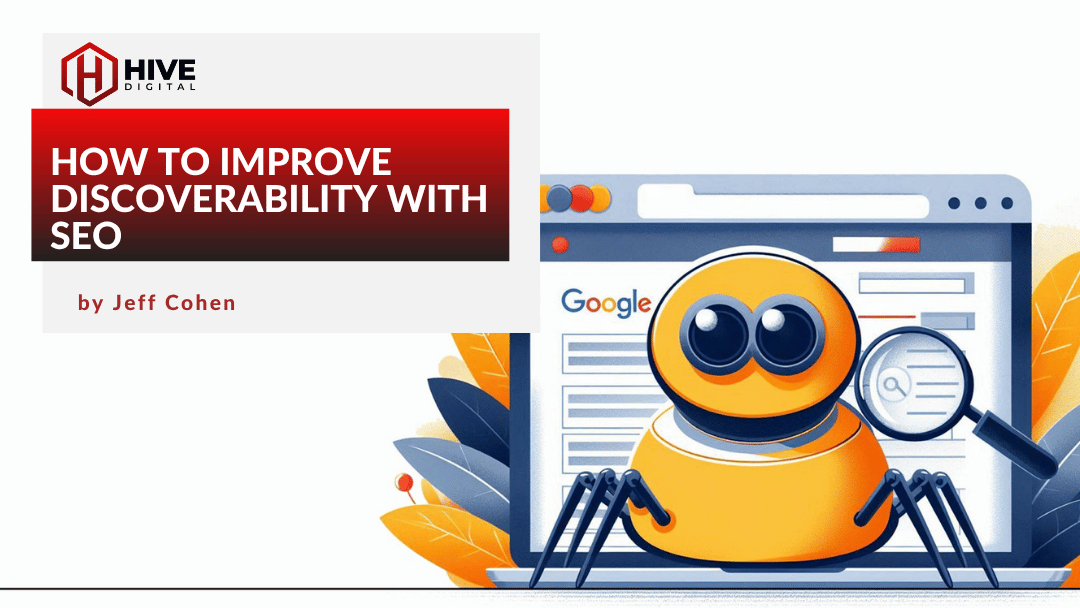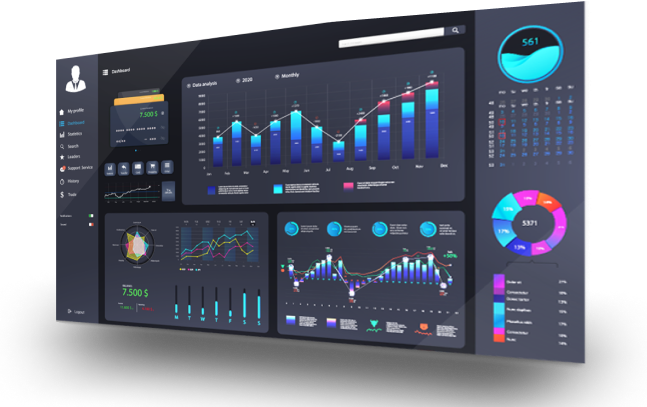The Impact of AI on Content Creation
The digital world is abuzz with the rise of Artificial Intelligence (AI), and its impact is felt across various industries, including content creation. AI-powered tools are capable of generating website content in various formats, from blog posts to product descriptions. While this innovation offers exciting possibilities, concerns about content quality remain a central discussion point.
AI Content: Friend or Foe for Website Creators?
So is AI a human content creator’s ally or adversary? Well, if we ask the machine it will say something like this…
Jasper.ai: “The perception of Artificial Intelligence (AI) as a potential adversary often stems from misunderstanding or fear of the unknown. In reality, AI holds immense potential to be beneficial across various sectors and industries. “
A little dry, but relatively well said.
By now you’ve likely come across some AI generated content on some of your favorite websites. How would you know you ask? Remember when you were reading that article and something just seems a little… off? Some telltale signs include: A particular word or phrase repeated a dozen times throughout the piece. A sudden shift to purple prose when talking about mundane subject matter. Or that dry, impersonal tone that just sounds like it was lifted from a medical journal.
But does that mean we should grab our torches and pitchforks and chase out all these AI-powered content creation tools? Not necessarily. I’d argue that we should instead chase out the lazy human creators that aren’t using these tools in the best way. As complex and robust as the tech is, an AI chat tool’s primary function is pretty rudimentary – using all the examples they have, analyze them and output something that sounds like it goes together. At the end of the day the tools are only as good as their knowledge base and the instructions we give them to provide output. Or in simple terms – garbage in, garbage out. AI simply doesn’t have the capacity for actual understanding and nuanced thinking like we humans do.
AI’s Strengths: Assisting With The Boring Stuff
But it does have its strengths, like finding information, organizing large amounts of data, and identifying patterns. So what are some ways we can make the most of this new fangled tech when working to create content?

Leverage AI’s Efficiency Boost: One of the immediate benefits of AI is its ability to automate repetitive tasks like generating product descriptions or summarizing information. This can free up valuable time allowing content creators to focus on more strategic and creative endeavors. Let the robot do the grunt work so we can spend time refining content strategies, conducting in-depth research, and developing those engaging narratives our stakeholders are asking for instead of spending hours on mundane tasks.
Scaling Content Creation: AI can significantly increase content volume in a shorter time frame. This allows websites to cater to specific audience segments and potentially reach a wider audience more efficiently. For businesses with a large product range or extensive blog topics, AI can be a valuable tool in article idea planning and managing content output without sacrificing quality.
SEO Potential: When used with the right data sets, AI can assist in finding common questions, concerns, and needs of your potential customers and help identify relevant keywords so you can focus on optimizing content.
However, the convenience of AI does come with a few caveats. First and foremost, quality control is critical. If you don’t want to trigger any of those red flags we mentioned earlier, then your AI-generated content will require a human editor to review and refine before it’s ready for primetime. Even with the most robust prompts, without proper oversight, the output may not always align with the correct brand voice, tone for the target audience, or be grammatically incorrect. And while AI can assist in data analysis and identifying patterns, it cannot replace the value of human intuition and creativity when it comes to developing compelling content.
What’s Wrong With Letting the Machine Do All The Work?
Have you heard the one about some company that decided to stop using human copywriters and let AI handle the entirety of their content creation? Yeah, it was dark times for a minute, but many companies quickly learned that this approach ended up having significant drawbacks. This becomes particularly evident with certain subject matter like topical or trending themes, or topics where AI might not have as much reference data. This often resulted in potential hallucinations or misinformation (sometimes it just makes stuff up) or content that lacked proper tone for audience engagement and ended up sounding like gibberish.
Some other areas of concern included:
Content Originality: The primary concern surrounding AI content revolves around quality. Humans want to read something interesting and compelling, Google wants to show something interesting and compelling, but AI-generated content can sometimes lack originality, depth, or just the basic nuance to truly engage an audience.
Reduced Creativity Reliance: Over-reliance on AI to make more content at a faster pace poses the threat of stifling a writers’ ability to create unique content. If content creation becomes solely focused on leveraging AI tools for quantity, it may limit exploration of unique ideas and storytelling approaches. This could homogenize content across websites, diminishing the overall user experience.
Ethical Considerations: The potential for plagiarism and the misuse of AI-generated content raise ethical concerns that need careful consideration. It’s essential to ensure that AI-generated content is used transparently and ethically, respecting intellectual property rights and avoiding any practices that could mislead users.
How Can Content Creators Adapt To This Evolving Landscape?
It’s less daunting than it sounds. We simply need to update some of our processes and methods to properly incorporate this new tech. I’m actually old enough that I had to take a typing class back in middle school – like on an actual typewriter with paper, white out, the whole deal. When my school finally upgraded to IBM PCs with word processor software I don’t recall anyone missing the old machines. In that same way, I’m ready to embrace AI as a helpful tool that will do what I tell it to rather than a replacement for human creativity and intuition.
Content creators should continue to refine their craft, staying updated on industry trends, and finding ways to incorporate AI into their process without sacrificing quality or originality. AI doesn’t replace the need for proper research or understanding your target audience.
- Focus on Strategy & Creativity: Rather than viewing AI as a competitor, content creators can leverage it as a collaborative tool. Utilize AI for tasks like data analysis and keyword research, freeing up time to focus on developing unique content strategies and exploring creative storytelling approaches.
- Develop Specialized Skills: Instead of fearing AI’s rise, content creators can choose to hone their skills in areas where AI is less effective. This includes critical thinking, creative problem-solving, and storytelling. These skills remain crucial for developing content that resonates with audiences and fosters genuine engagement.
- Maintain Human Oversight: Always remember that human judgment is irreplaceable. Review and edit AI-generated content carefully to ensure its accuracy, engaging writing style, and optimization for your target audience. Human oversight is essential in ensuring the content reflects your brand voice and values authentically.
For now, AI offers exciting possibilities for website content creation, but the key is to approach it strategically and always prioritize quality over convenience. Think of AI as that fresh-faced intern in your office that hasn’t been jaded yet – eager to help with any task, ready to give 110%, but still green so they need us seasoned vets to provide the right guidance so they can provide the best results for our requests.
Me: Hey ChatGPT, can you get me a fresh coffee?
ChatGPT: “I wish I could, but as an AI language model, I’m not able to physically interact with the world or fetch items like coffee. However, I can provide you with a recipe to make your own fresh coffee if you’d like!”
Me: Never mind.










